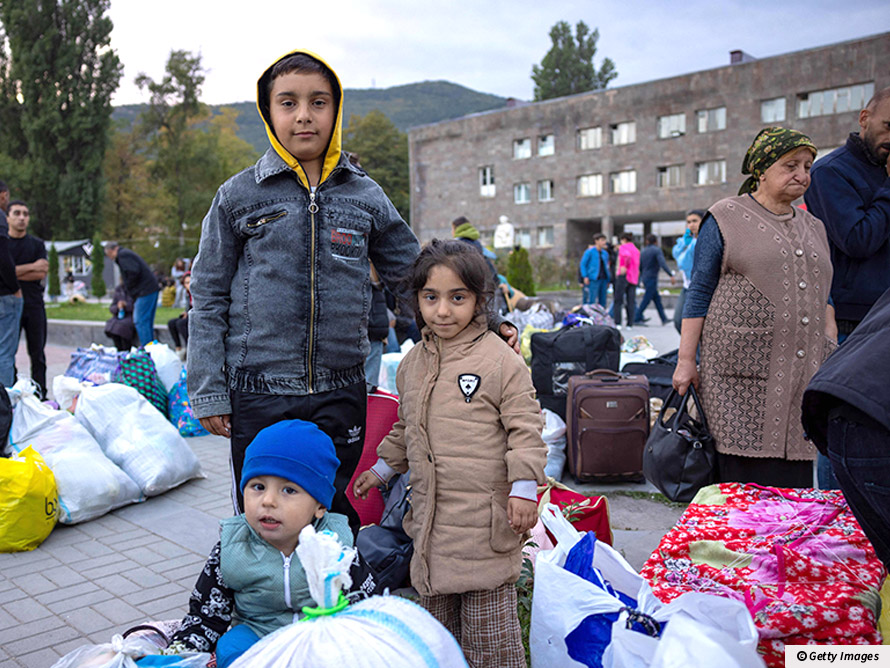Is world peace possible? A hundred thousand people have fled their homes. Everywhere we look there is more conflict. Some think a peaceful world has never looked more remote.
An invasion. Bombs. Over 100,000 new refugees

Glossary
Armenian - Armenia is a former Soviet republic in the Caucasus region between Asia and Europe.
Nagorno-Karabakh - A mountainous region of the South Caucasus. The area is disputed by Azerbaijan and Armenia.
Ethnic cleansing - The systematic forced removal from one area or killing of an ethnic group, with the aim of creating a region that is ethnically homogeneous.
Azerbaijan - A former Soviet Republic between the Caspian Sea and Caucasus mountains.
Atrocities - Terrible things.
Incursions - Sudden or brief invasions.
Taiwan - An island country in east Asia. China still claims to be the legitimate owner of Taiwan, while the Taiwanese government until recently claimed to be the legitimate government of the whole of China.
